Liberia. Part IMap
November Liberia is an amazing country. It was founded by emancipated black slaves who were put on ships and sent back to Africa from the United States so that they wouldn’t be hanging around without use. After founding a new state, the former slaves in turn commenced their own African slave trade, completely adopting their recent owners’ manners and habits. Liberia’s flag even looks similar to the American flag, only it has one big star instead of many small ones. 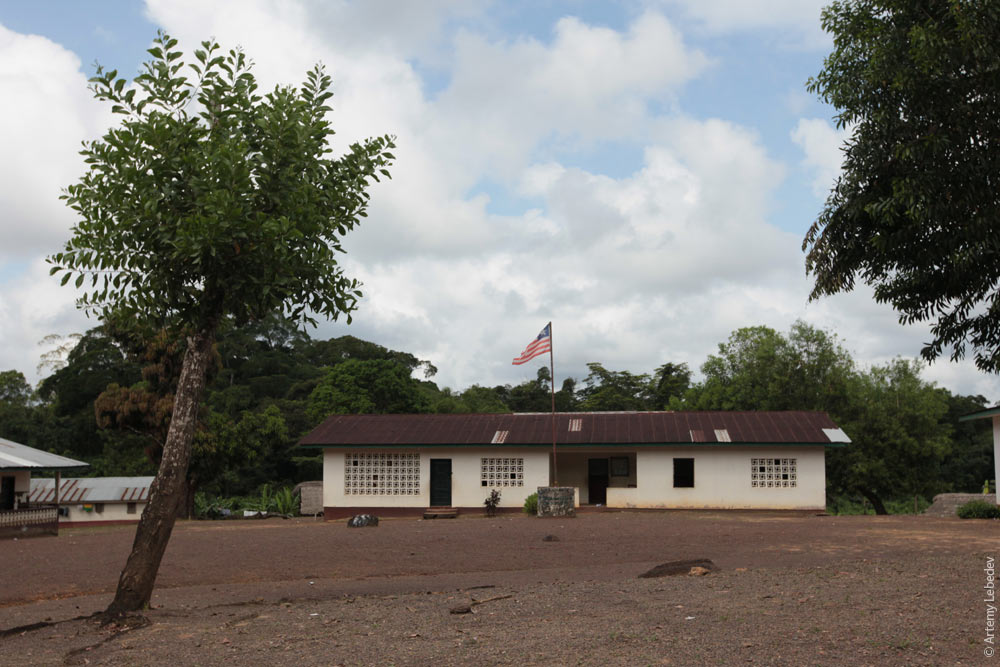 The first country to formally recognize Liberia as a state in 1850 was Russia. 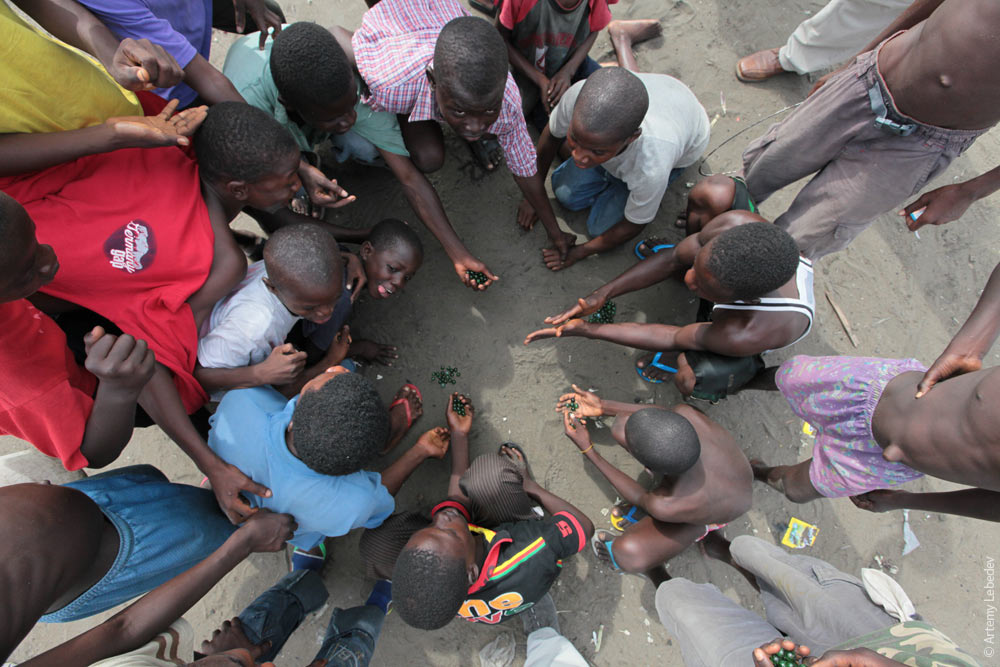 My seat neighbor on the flight from Brussels to Monrovia turned out to be Winston Tubman, a Liberian presidential candidate in the last elections (he came in fourth). His uncle, who has the same last name, set a record in his time for being the longest serving president of Liberia. Every city has a street or institution bearing the Tubman name. Reading the newspaper, which is written out by hand for those who can’t afford the paper version: 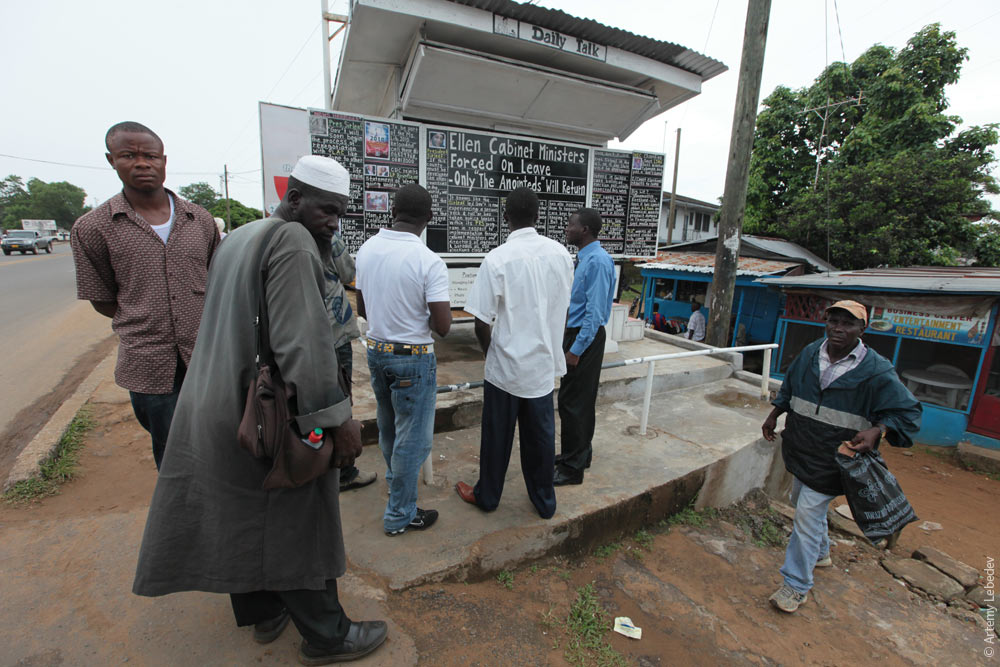 If you want to successfully close an important business deal or get a promotion in Liberia, you sacrifice a child (by pounding one to death in a mortar). A child can be bought for –100 in the villages. A slave woman costs –200. 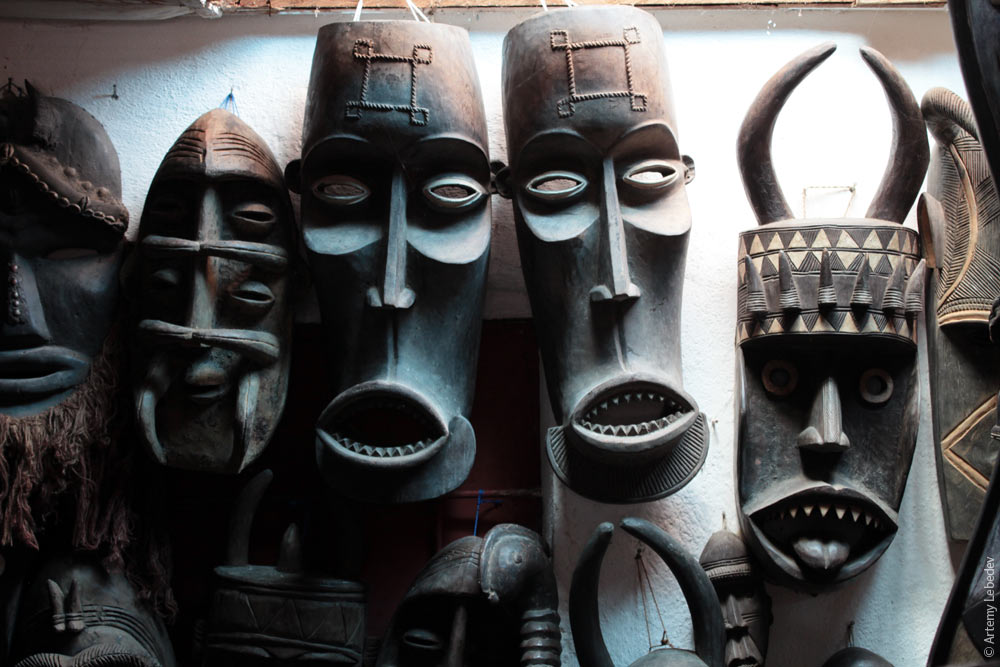 Even though Liberia was never a colony, a series of civil wars led to it being de-facto colonized by the UN and other human rights and international aid organizations. 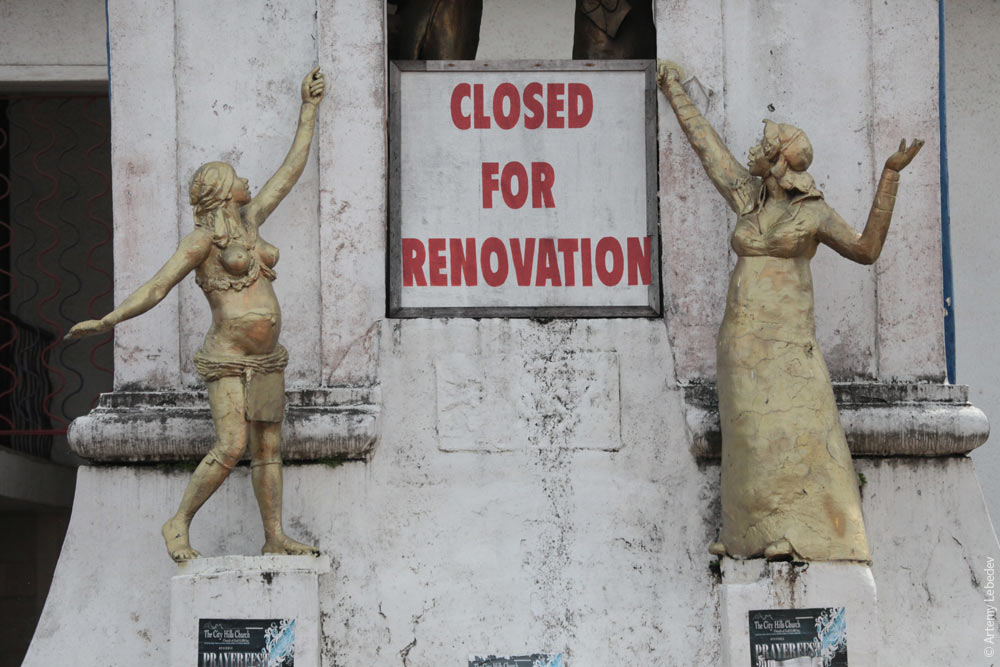 UN workers’ cars can be easily recognized by their white color and unbelievably massive antenna base, usually mounted on the front bumper. 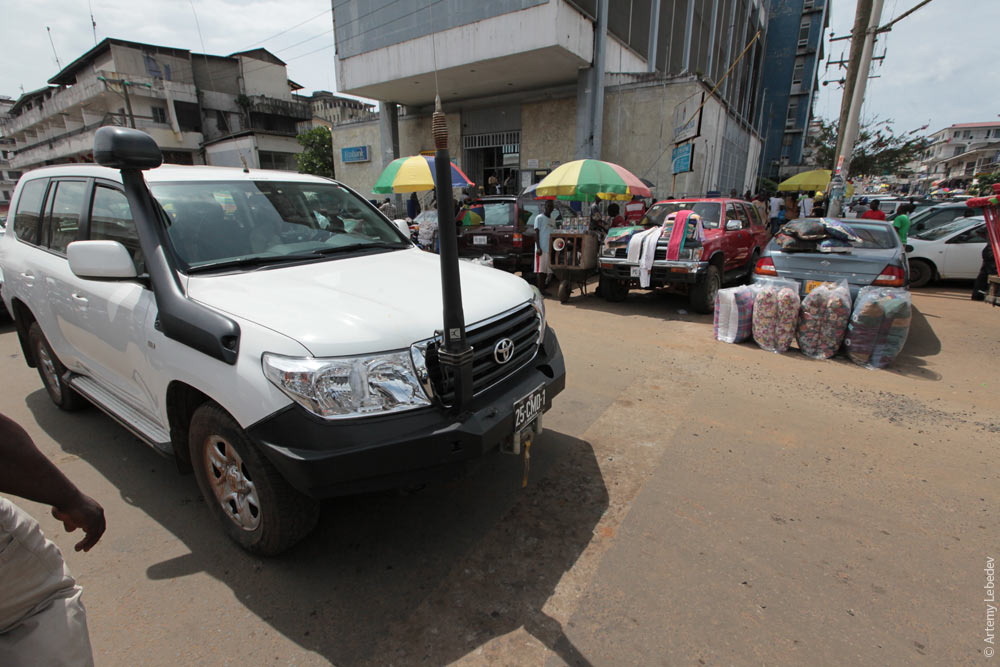 The UN presence has had a positive effect on the assortment of goods available at supermarkets in the capital, where you can find all the American staples, from Starbucks iced coffee to over-the-counter medicine. 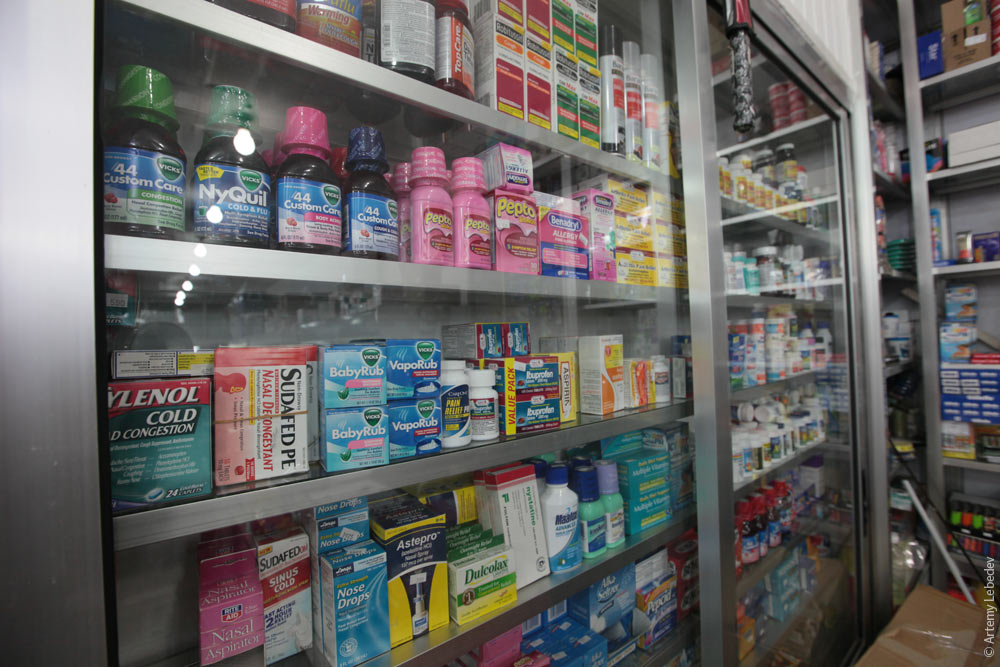 Native Liberians are used to a different kind of abundance. 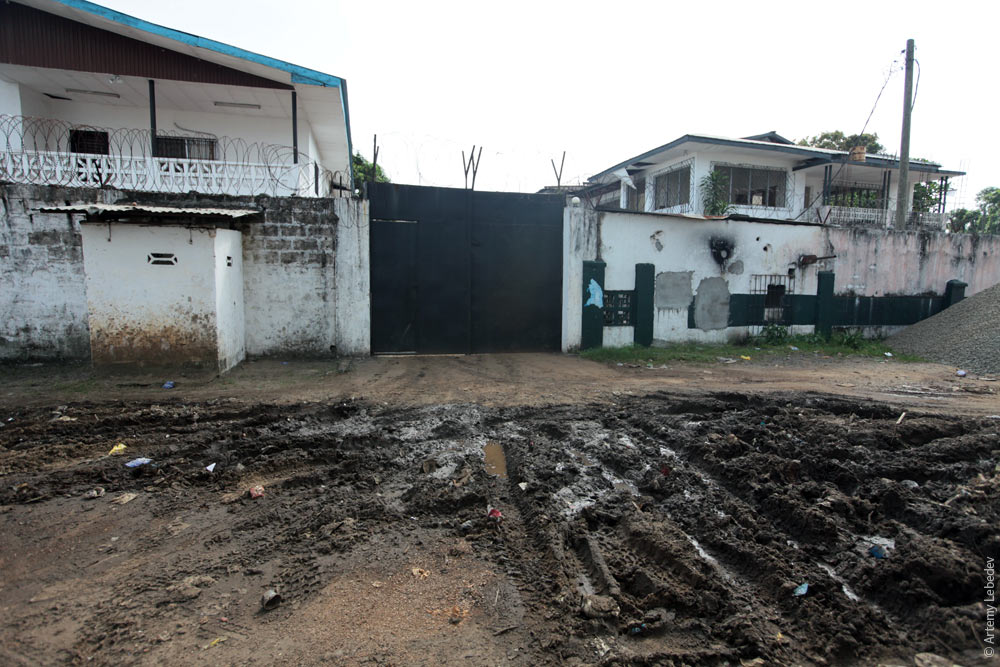 Western aid organizations have completely corrupted Africa and continue to encourage the worst possible model of behavior. All these organizations put up their billboards at the entrance to each village and settlement they support (compare to Australia). 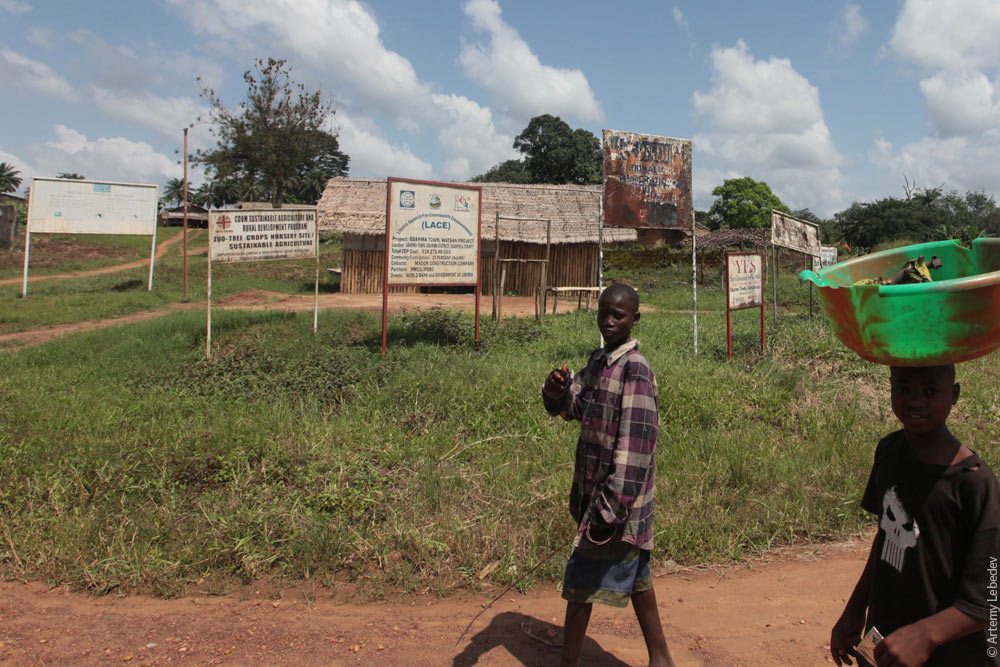 Unfortunately, the broader public has no idea about the widespread negative consequences of such aid, so it’s considered good form in developed countries to be helping someone in Africa. 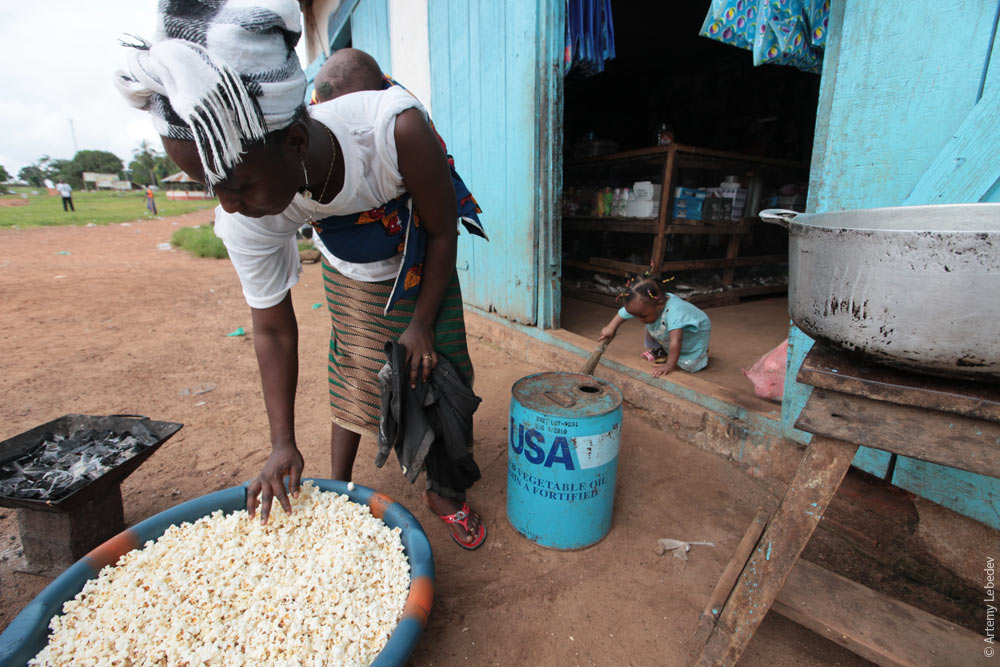 The black population of Liberia (just like everywhere else in Africa) prefers idleness above all else. Crappy work is the standard. When something costs money, people say, “What am I, white or something?” 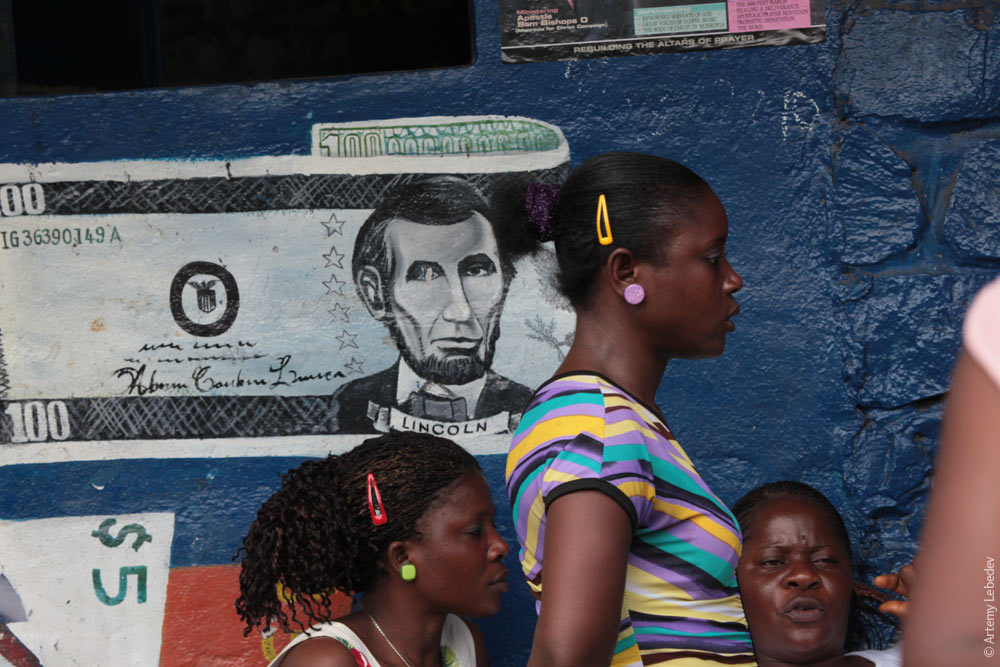 Liberian and US dollars are the currency used here. Currency exchanges look like beehives with wire mesh walls. Inside are piles of bills. Everyone carries packs of money in their pockets, so the bills end up smelling like rank laundry (they absorb sweat and then never properly dry out, if the reader may forgive me for such details from the life of banknotes). 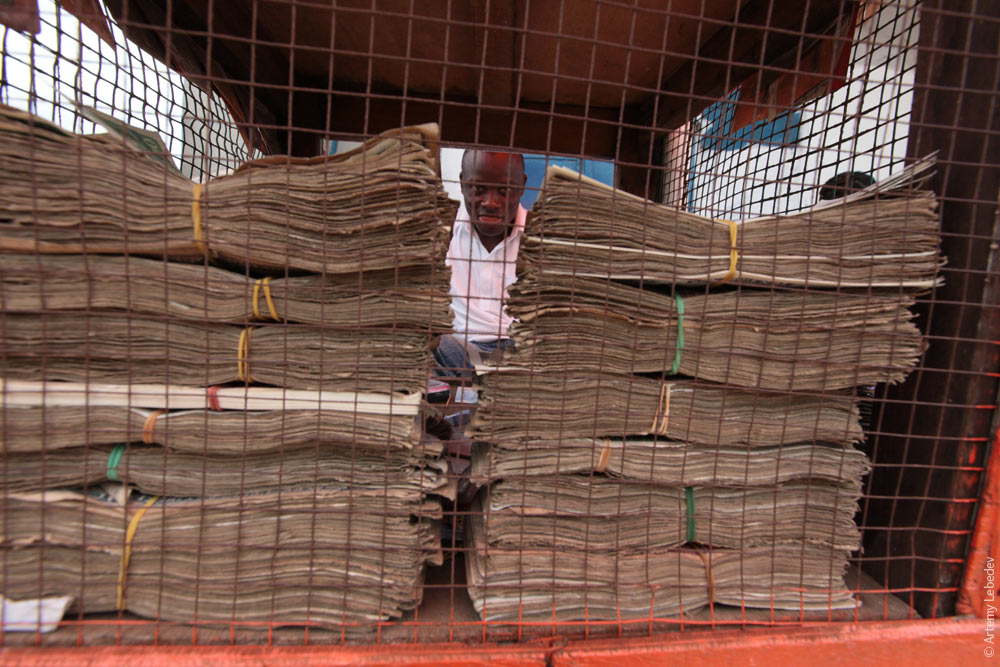 It’s customary to give a small tip for any kind of service (analogous to baksheesh in Egypt). Here, it’s called “cold water” because the most basic product is cold water in small plastic bags. International organizations frown upon such traditions, so important public services (for example, free clinics) are advertised with illustrated PSAs showing that doctors don’t want cold water. 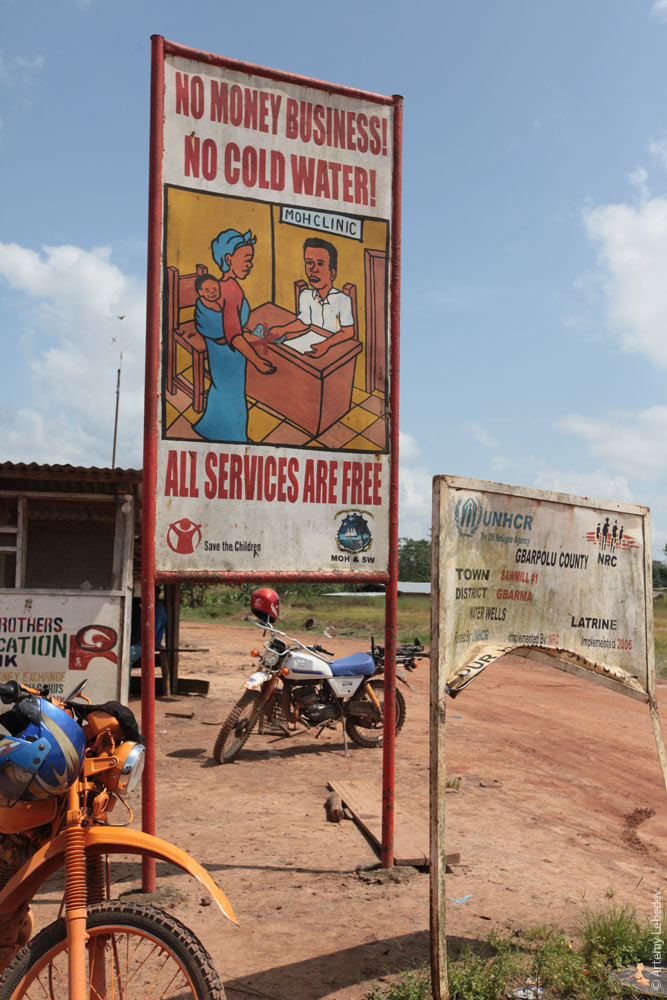 Cold water in the process of being drunk. 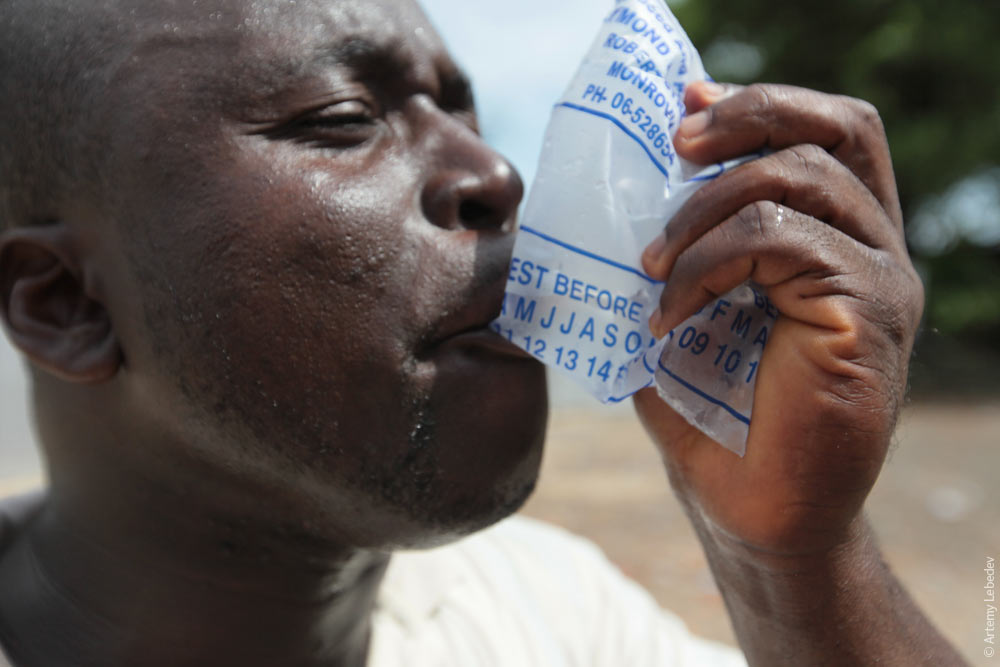 Oranges are drunk in a similar fashion. They’re sold peeled because the peel is sticky and sprays. As it turns out, there’s a convenient white layer underneath the peel. 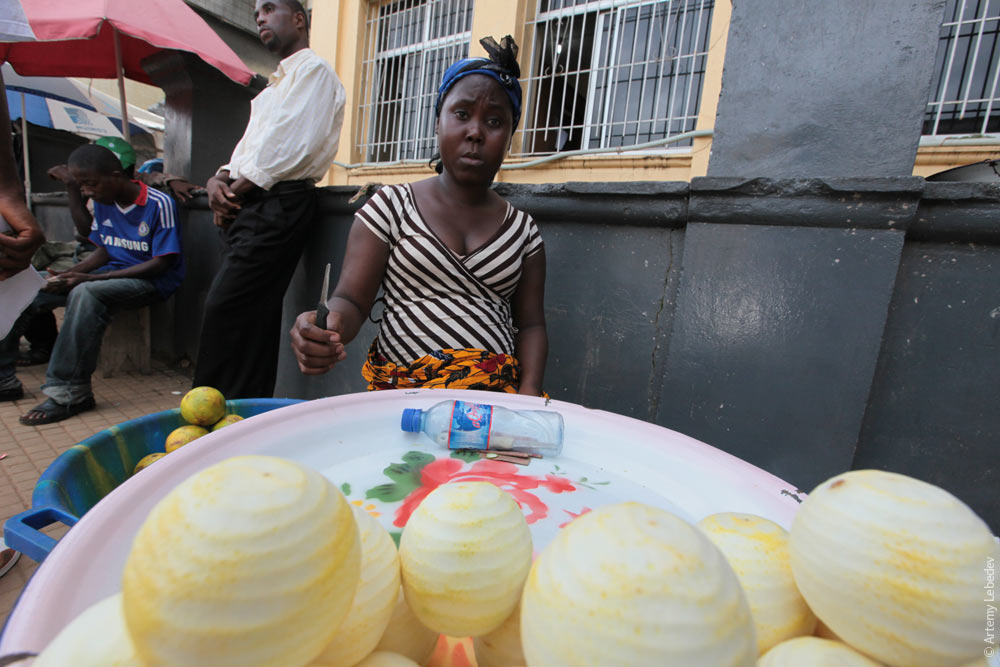 When a customer buys an orange, the seller cuts a little lid in the top. Everything is very sanitary, unlike the fresh-squeezed juice sold in India. 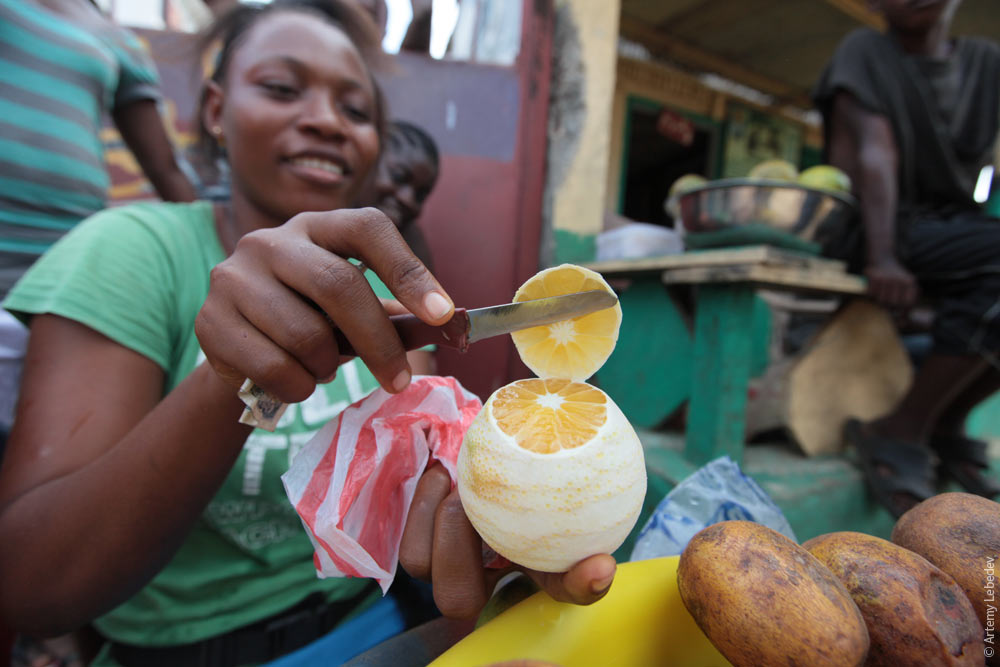 The buyer then squeezes the orange right into his mouth. The hands stay clean, and thirst is quenched. 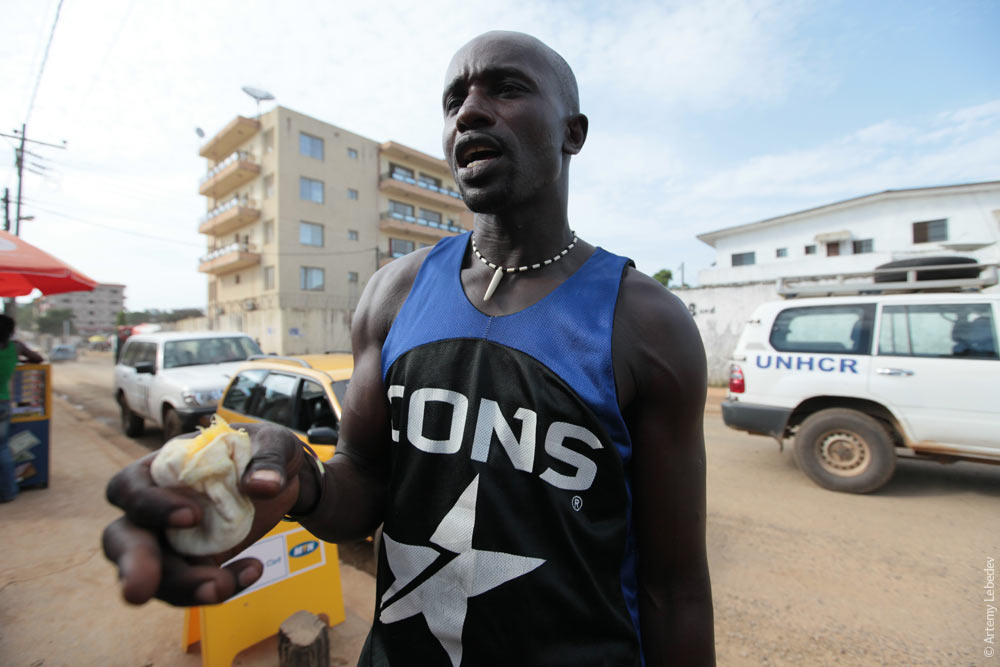 When you buy a can or bottle of something, it always comes with a paper napkin holding down the cap or simply covering the can. The napkin is used to wipe the mouth of the container before drinking. 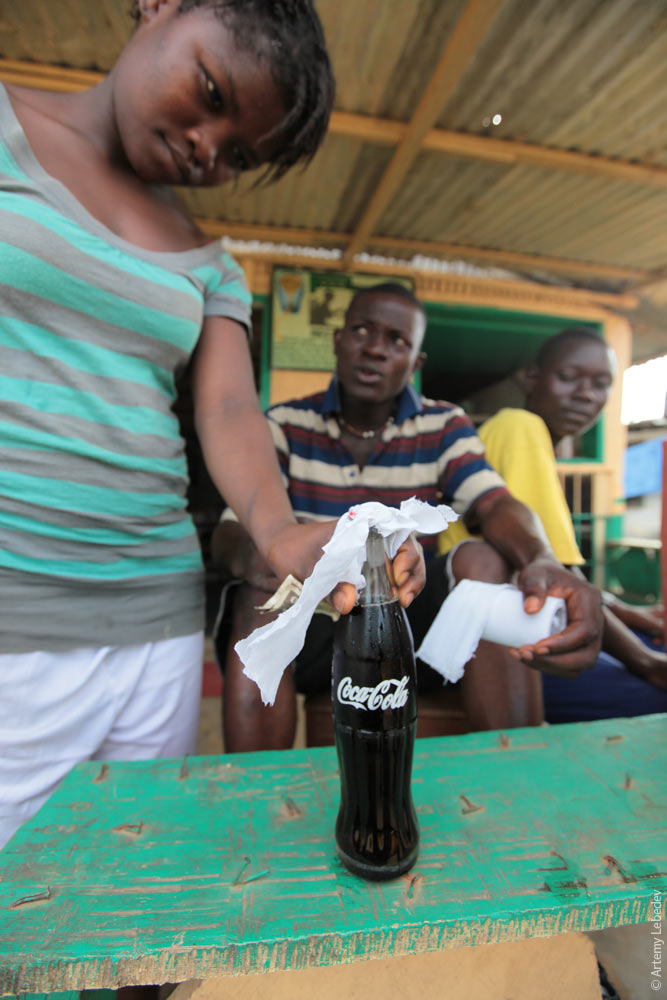 It turns out that the phrase “I want to lie under a palm tree all day and do nothing” is not the least bit anecdotal. 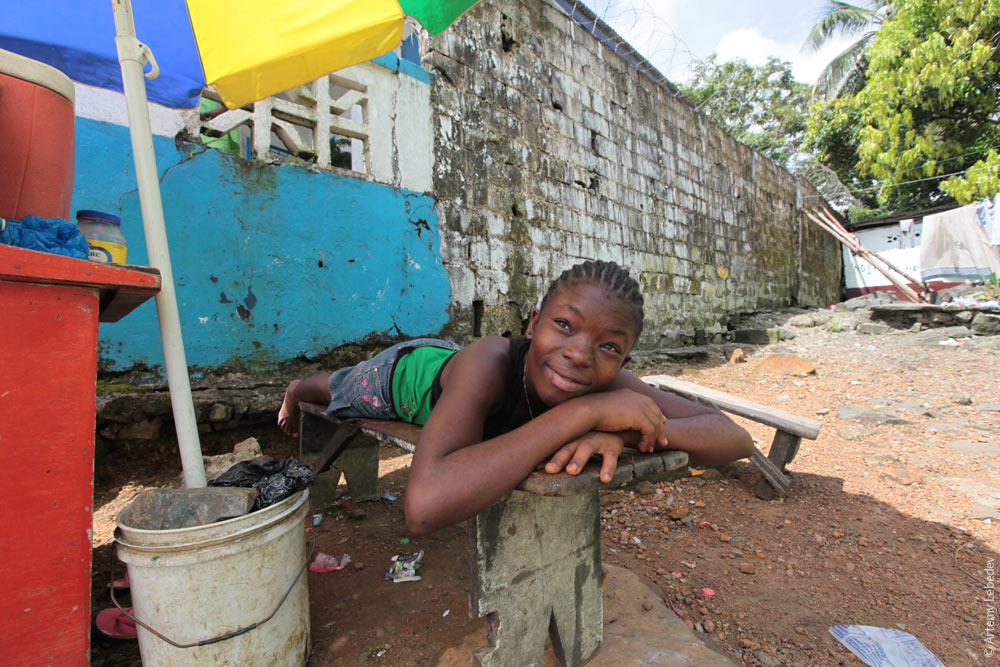 Everything that can be stolen will be stolen. Even Doctors Without Borders have to surround themselves with a fence and barbed wire—otherwise, everything in sight will be swiped within a second as you turn your head. 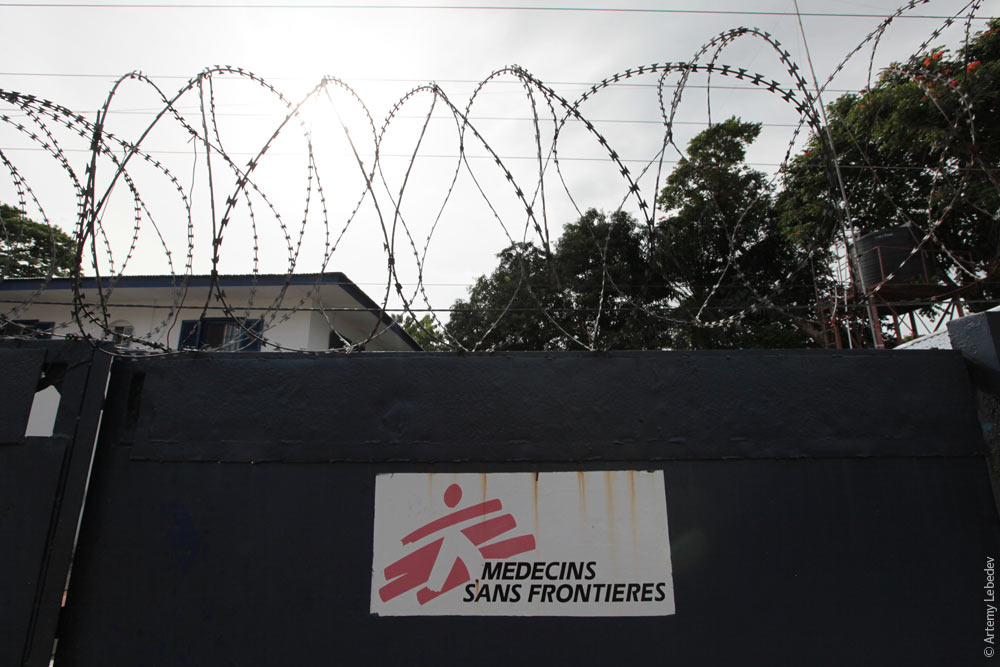 Rules and laws are seldom obeyed. A sign prohibiting left turns is blatantly ignored by everyone. 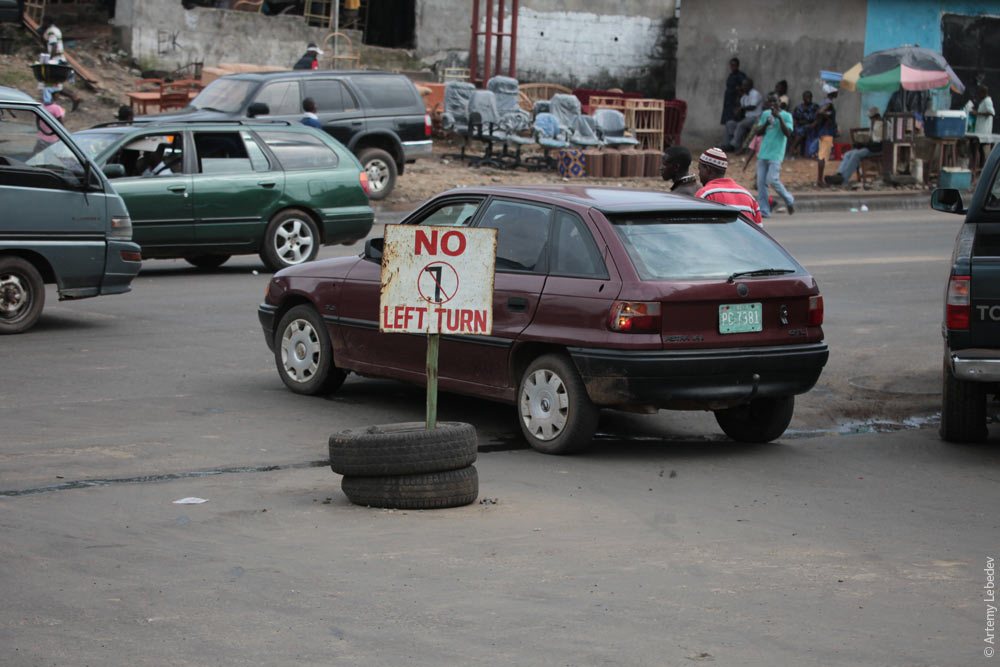 Everyone believes in miracles. An advertisement for yet another preacher’s sermon shamelessly promises miracles and cures. 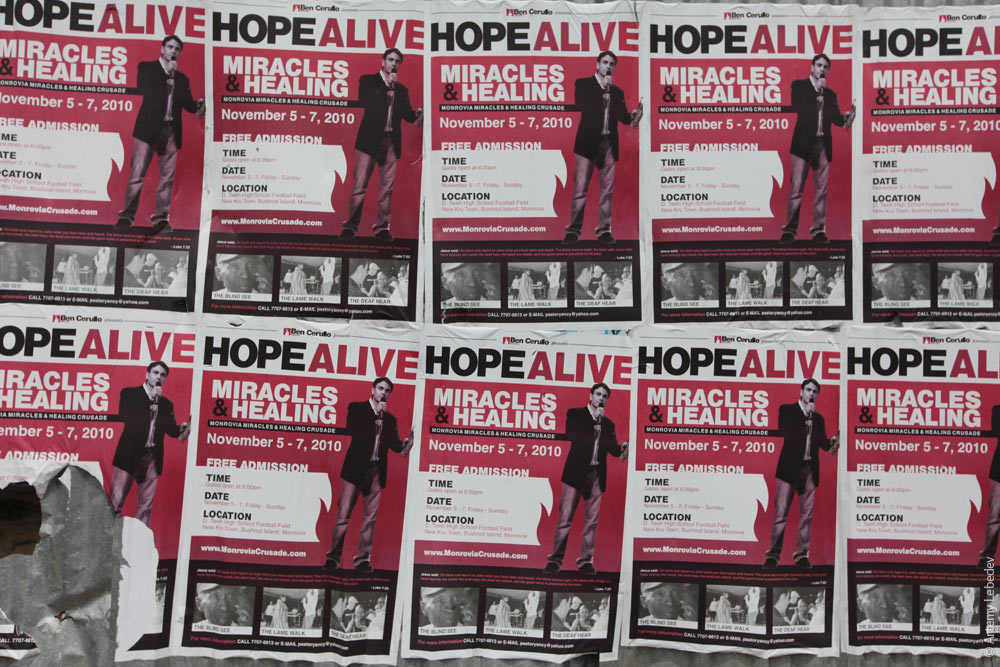 A public service ad on the wall of the Ministry of Health provides instructions for what to do in case of diarrhea. 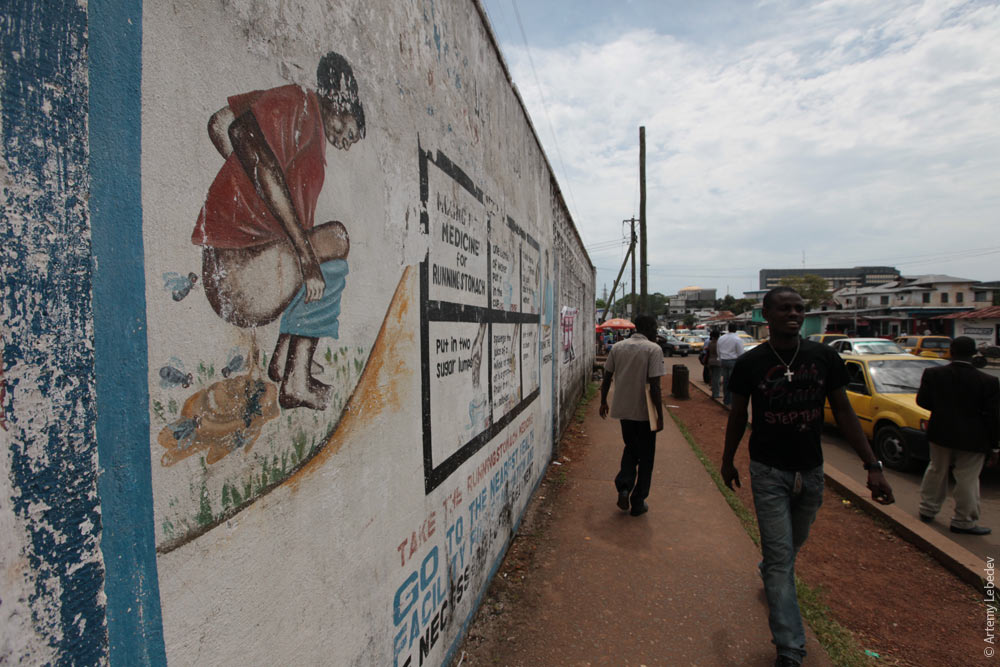 The ad next to it urges men not to beat women. 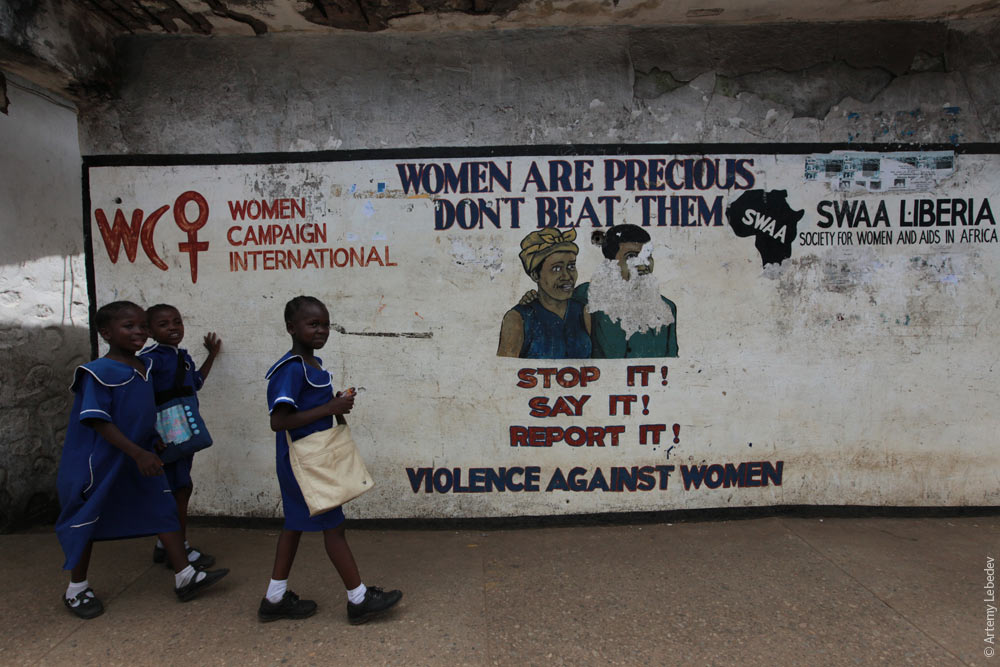 The level of development, illustrated: instead of safety goggles, the welder uses regular sunglasses. 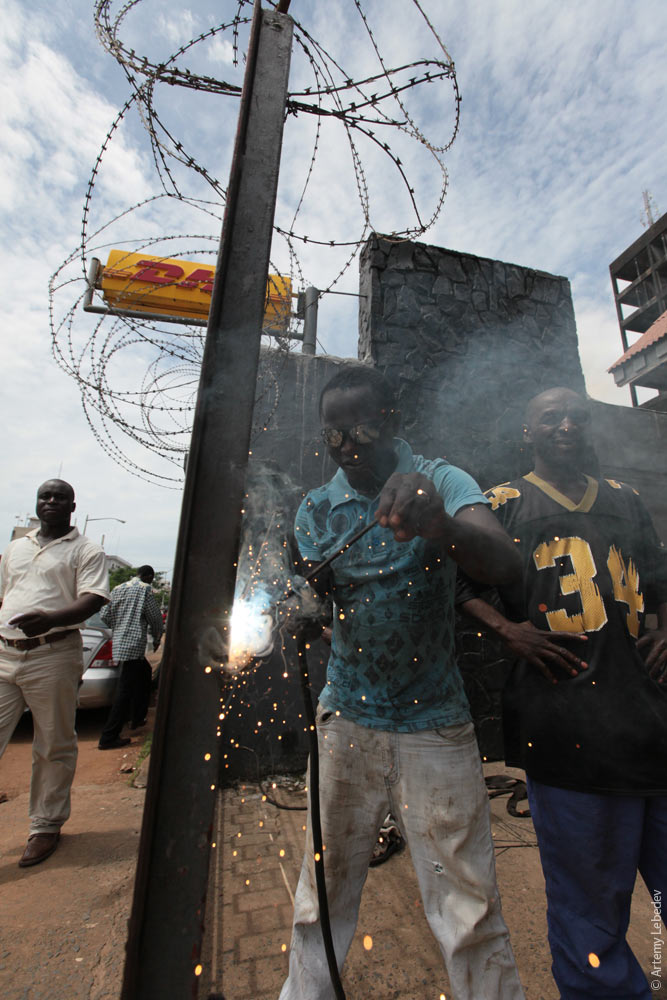 There’s trash all over the place. If you don’t throw your bottle out the window, everyone looks at you like you’re an idiot. 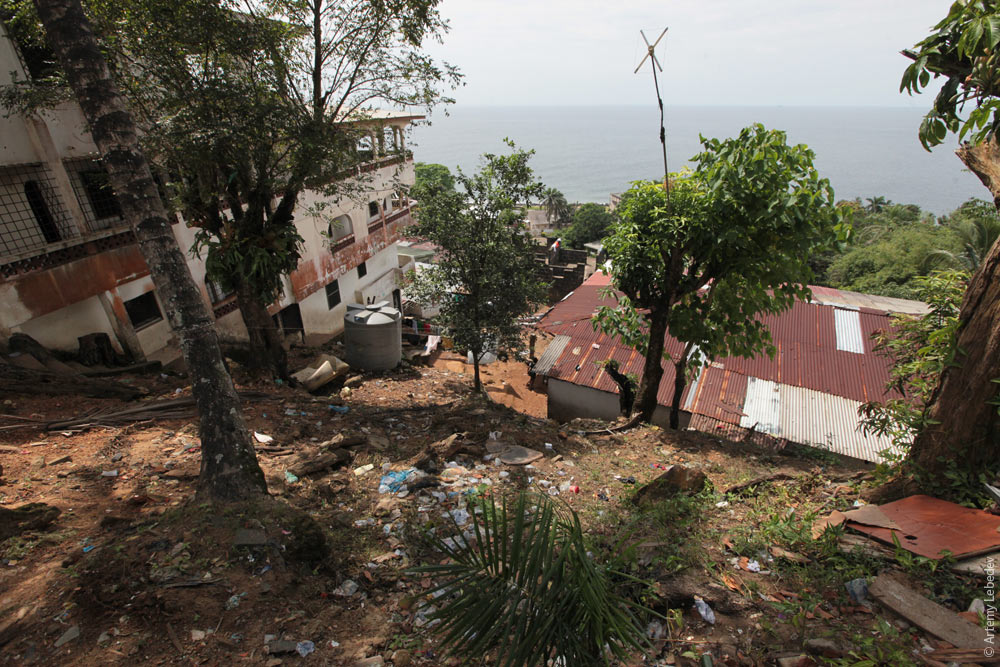 This is how people live. 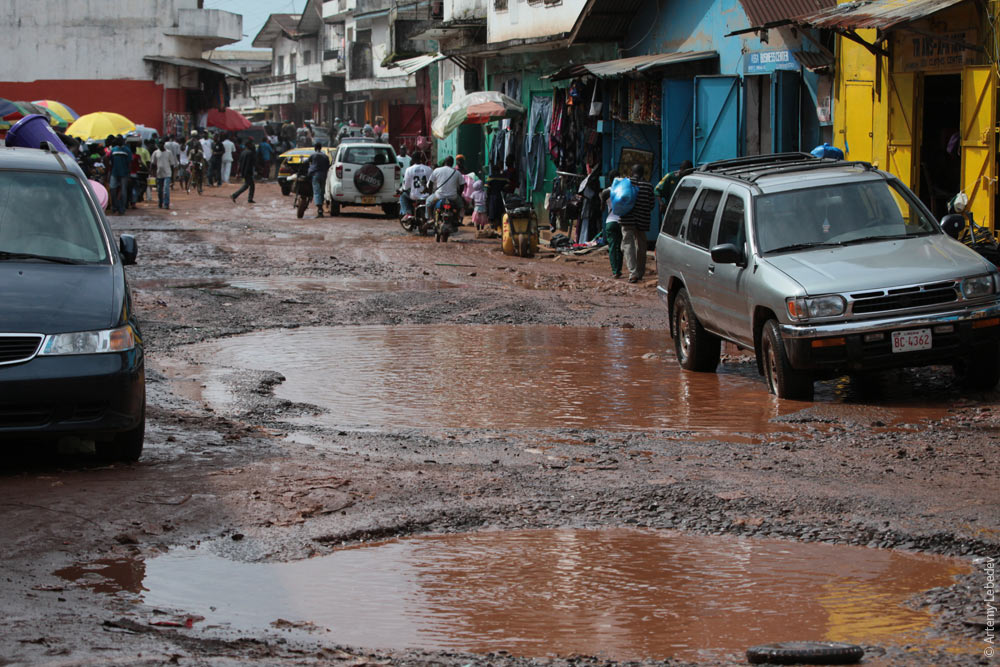 This is how they shop. 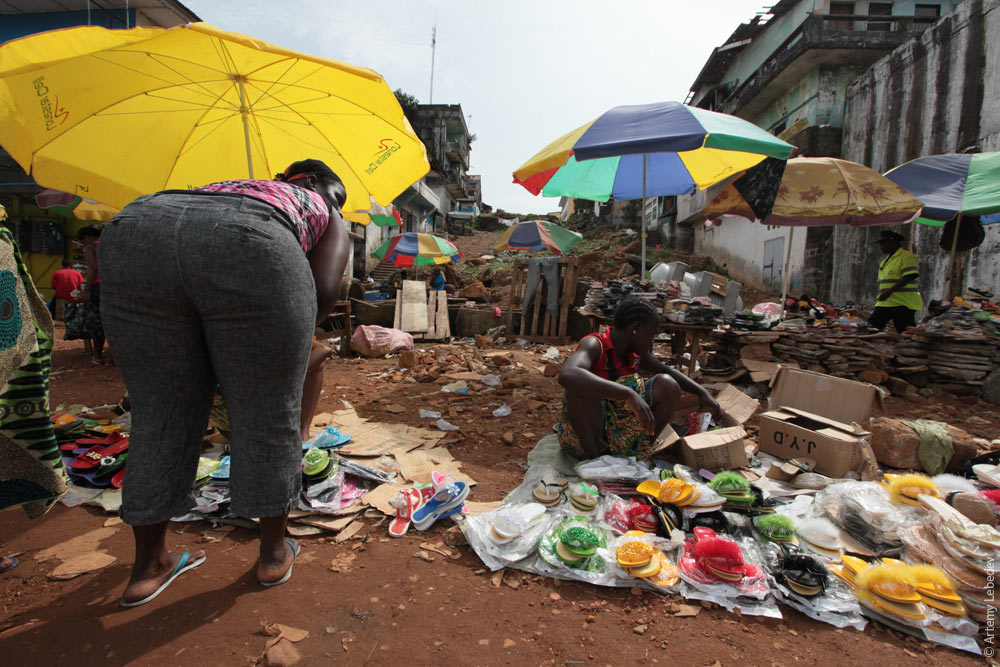 A hotel room with an en-suite bathroom. The bed is covered with an insect screen. It must be great to spend your honeymoon in a room like this. Sweetheart, I’m just going to take a dump here, don’t mind me. 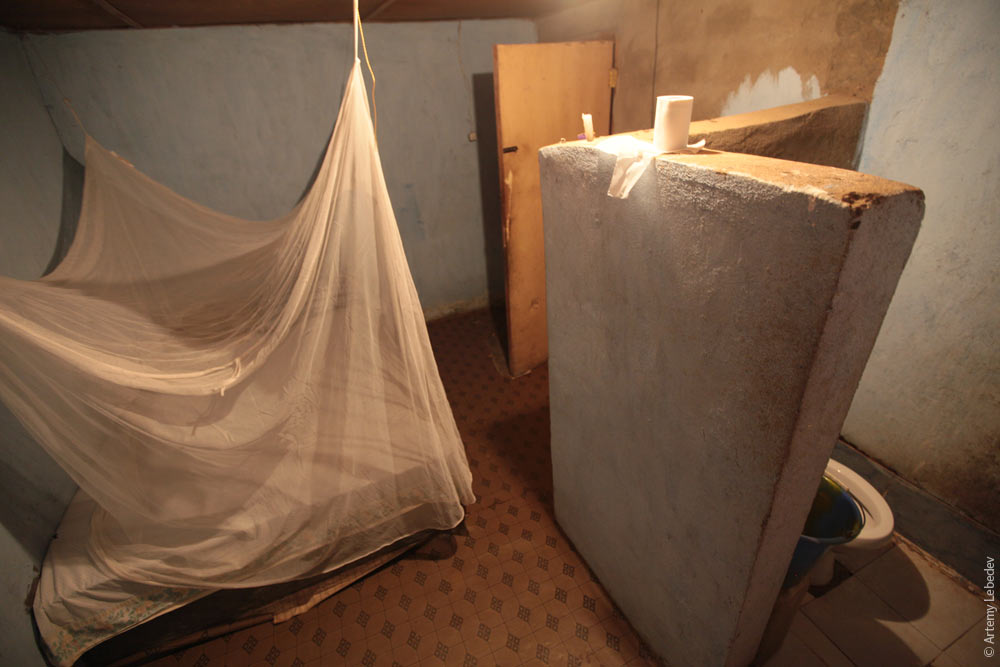 Speaking of which, Liberians do give a shit about their beaches—literally. Rather than taking a swim in the sea right in the city, amidst the white sands, locals go out to the beach to take a dump right on the white sand. How many squatting figures can you see in this photograph? That’s how many people are taking a dump. As far as the eye can see. Right in the center of the capital. The defecator isn’t even embarrassed to shoot the shit in the process: “Yo, why did you take a picture of me?” And continues laying his chocolate egg, the bastard. 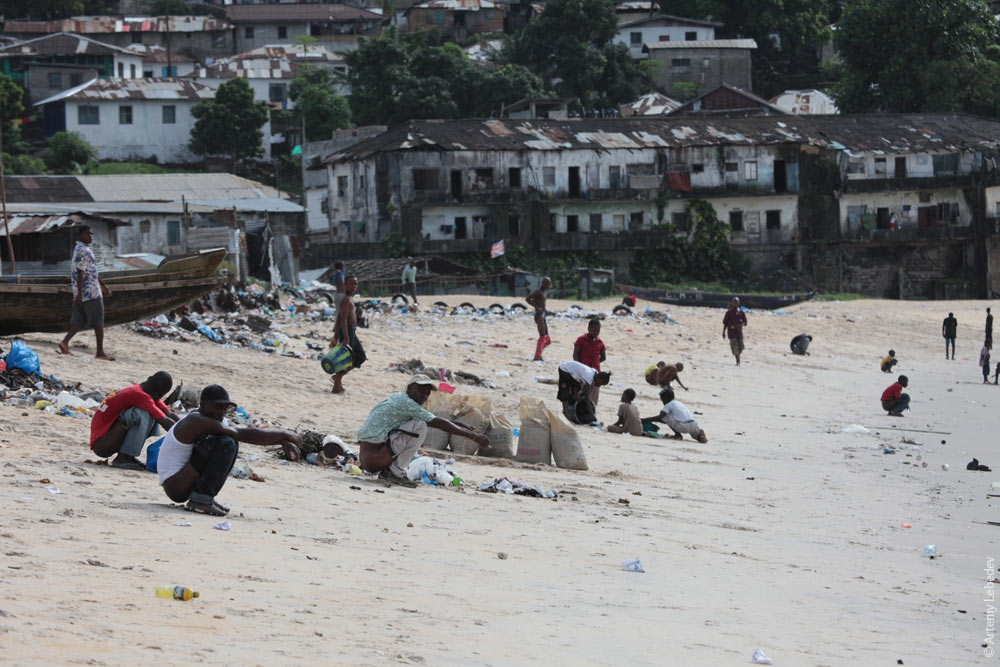 It’s customary to carry everything on your head in Liberia. 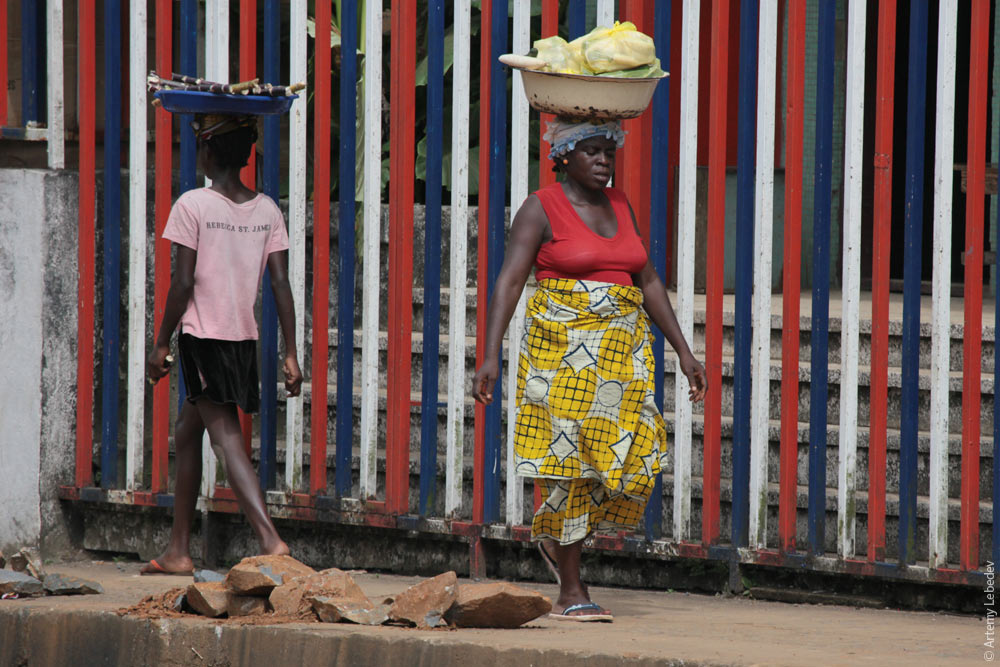 The size of what is being carried is mostly irrelevant. Men carry logs on their heads, students place notebooks on their heads, women at the market stack their goods on their heads. 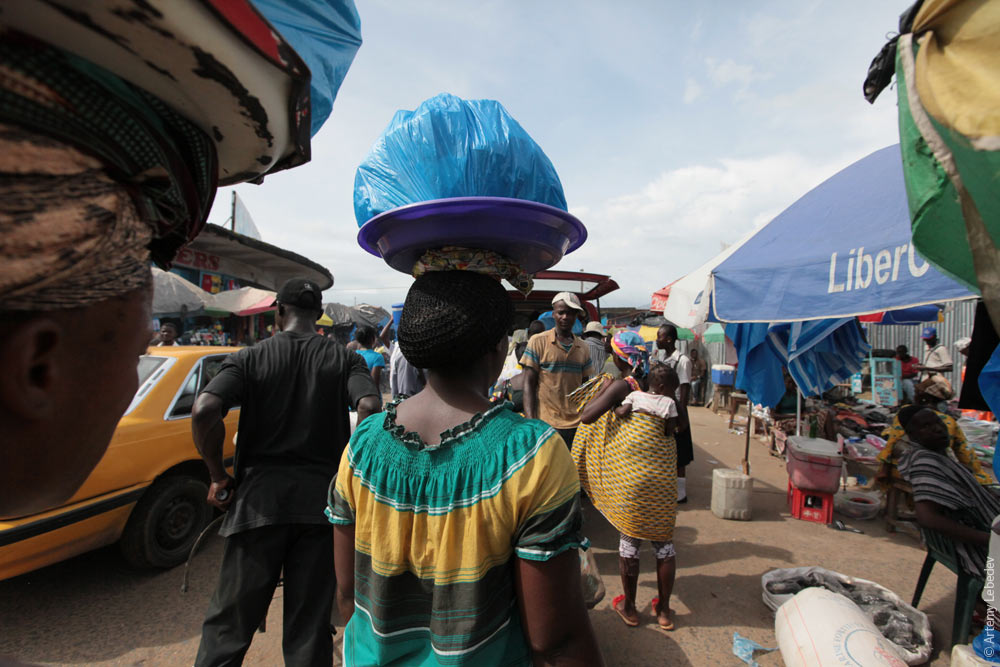 In rare cases, the load is supported with a hand. 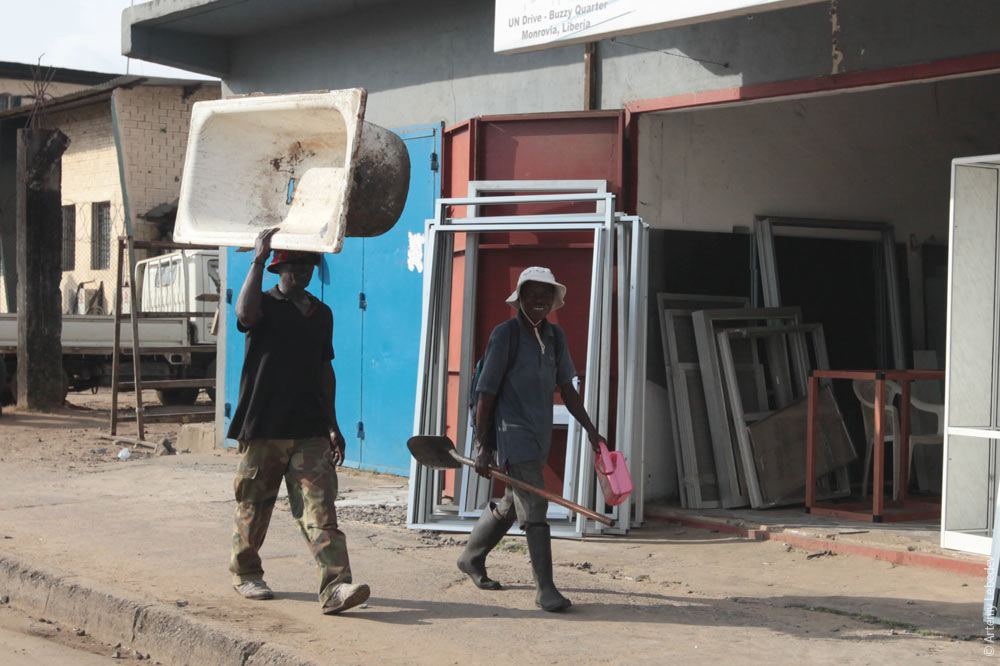 Bread? On the head it goes. 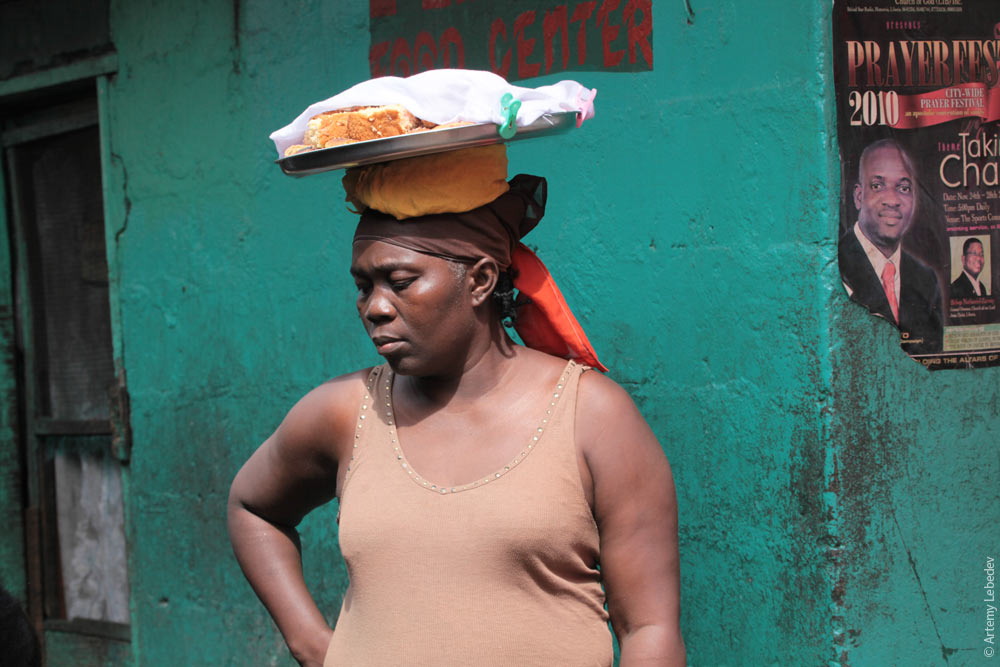 Some delicious herring? Well, you wouldn’t carry it in your hands, now, would you? 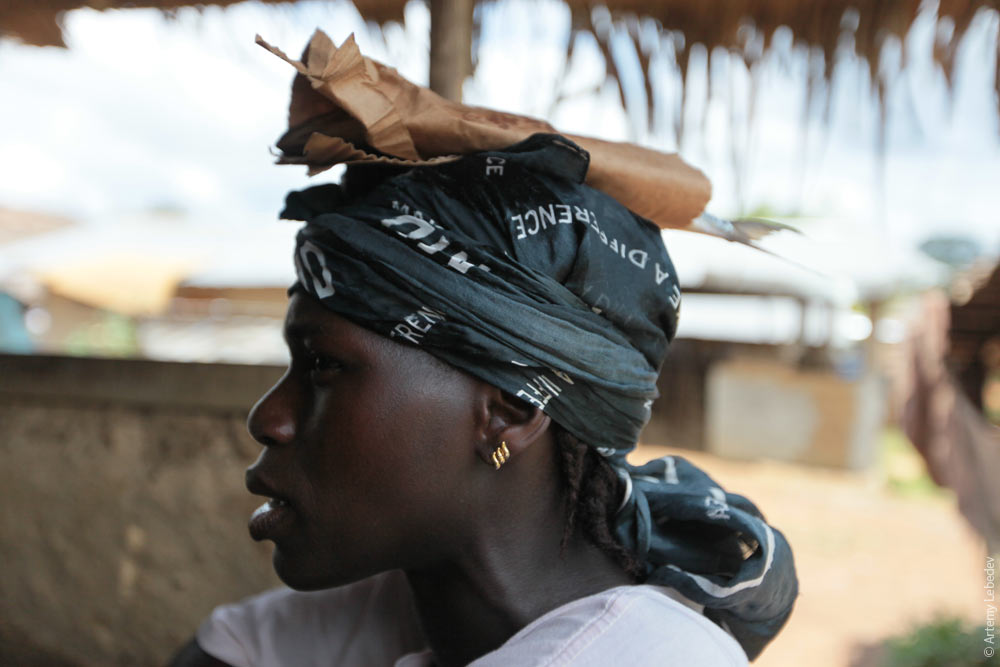 Get your hair styled, put a tray of tuna on top—and off you go to cook dinner. 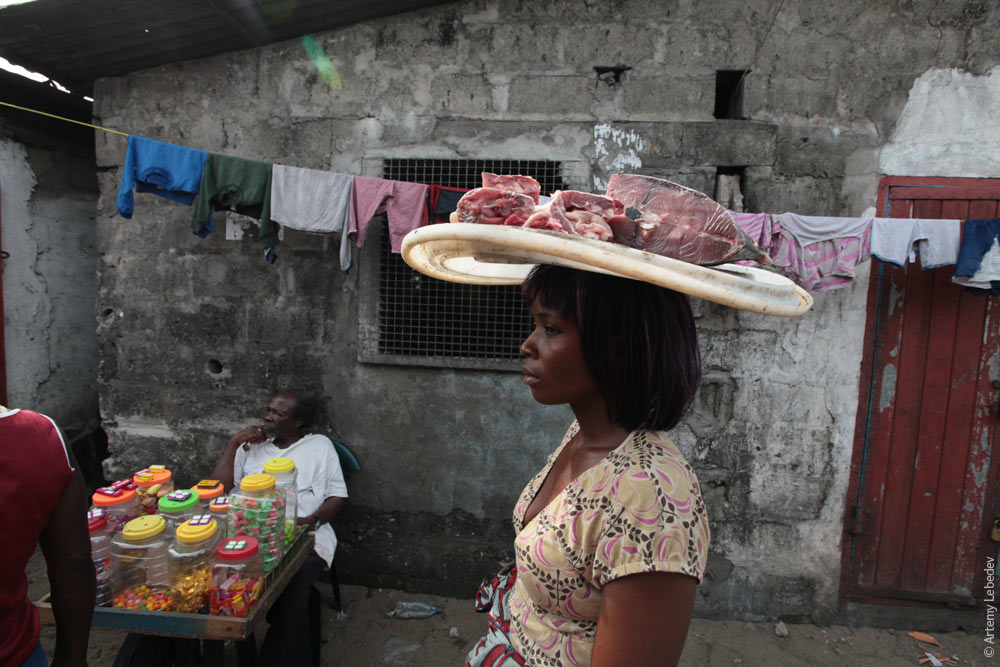 Children are always carried in a back sling. 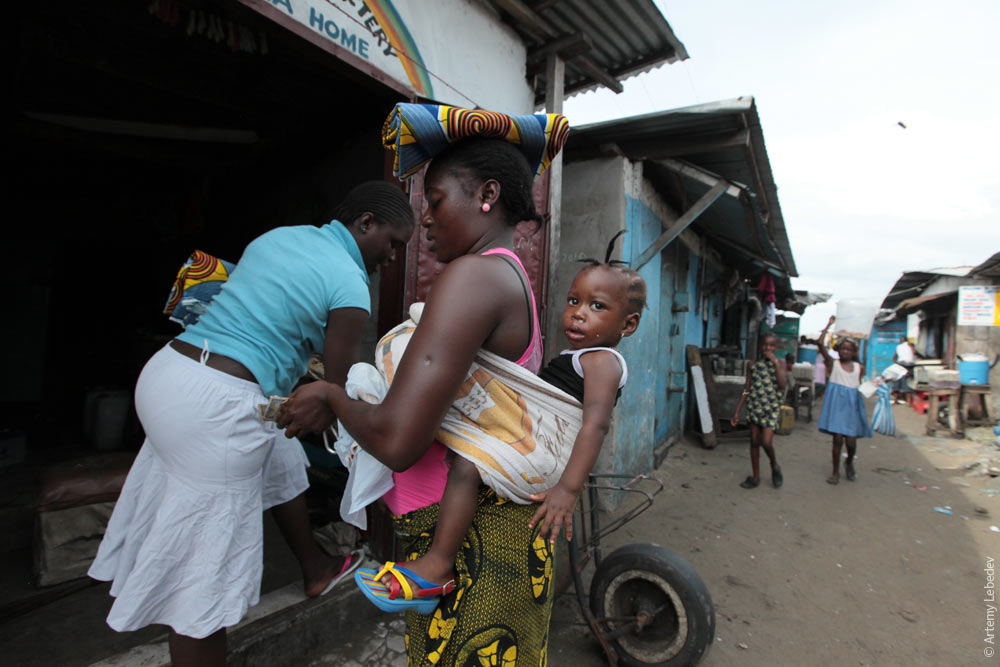 Sometimes it seems as if African women find it particularly comfortable to carry children on their backs because of one important feature they possess: their behinds always protrude at least as much as in the photos below: 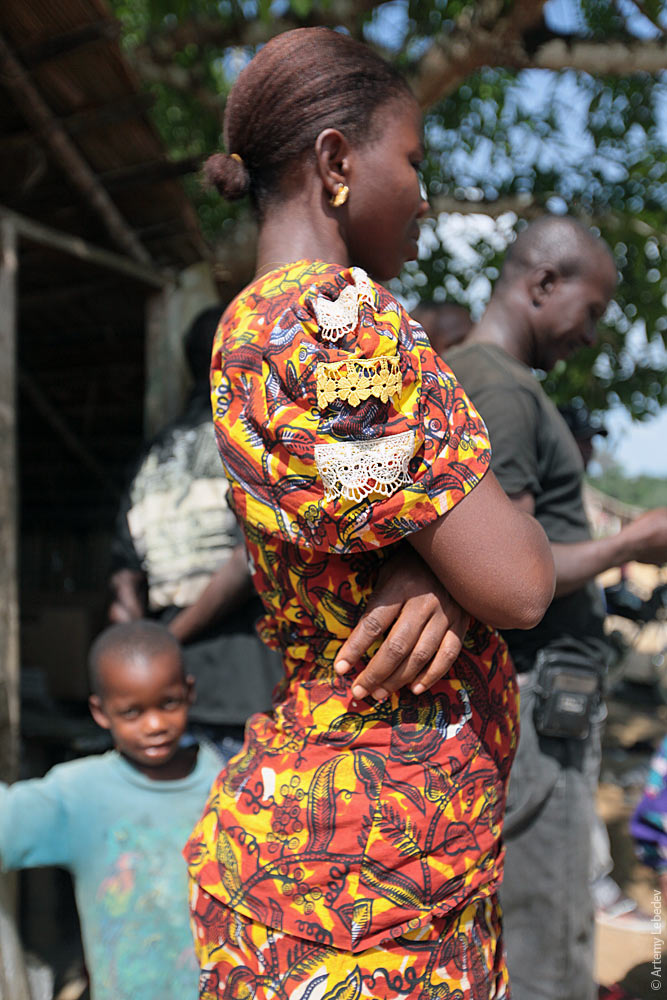 |